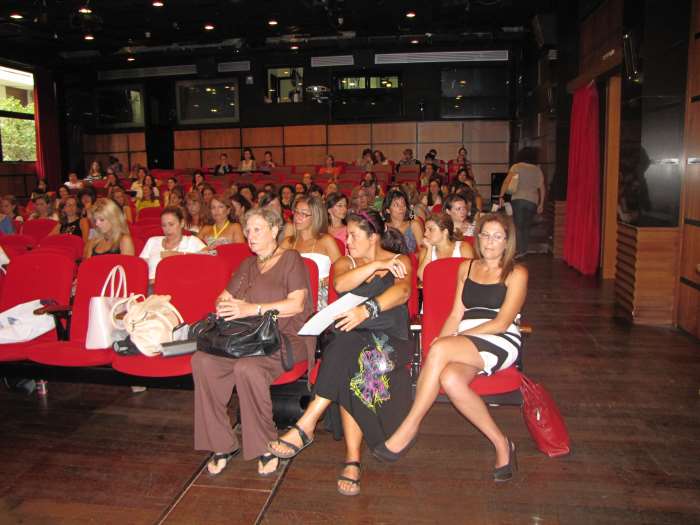The Panhellenic Association of State School Teachers of English held the first seminar of the current academic year at the hospitable premises of the Hellenic American Union, on Saturday, 7 September.
The main theme of the seminar was experiential learning and teaching.
Experiential learning emphasises the central role that experience plays in the learning process. In experiential learning ideas are not fixed but are formed and reformed through experience.
No two thoughts are ever the same, since experience always intervenes.
Experiential learning takes place when a person is involved in an activity, then looks back and evaluates it, determines what was useful or important to remember and uses this information to perform another activity.
The five step experiential model includes:
1. Experience - Doing the activity;
2. Share - Communicate results, reactions or observations;
3. Process - Analyse and reflect on the experience;
4. Generalise - Relate experience to a real world example;
5. Apply - Use what was learned in a different situation;
Teaching becomes an interaction between teacher and student, awakening the learner’s curiosity and intelligence. Hands-on activities provide a way for un-motivated youth to become engaged in learning. When combined with high levels of choice, hands-on activities encourage learning.
PEKADE’s seminar featured a variety of workshops and talks that focused not only on the central theme but also on many other areas of interest such as:
• a presentation by Cliff Parry, Academic Manager, British Council. Cliff identified some of the mistakes –or rather slips or errors- he has made during his 25-year-long teaching career and said that any question of teacher knowledge begins with ‘who is the other I teach?’ ‘what I teach’ and ‘how?’
• a discussion about Model United Nations -an authentic simulation of the UN General Assembly;
• EU cultural programmes and projects;
• the use of arts and crafts in language learning;
• implementing alternative assessment methods;
• applying psychometric tests; blogging etc.
